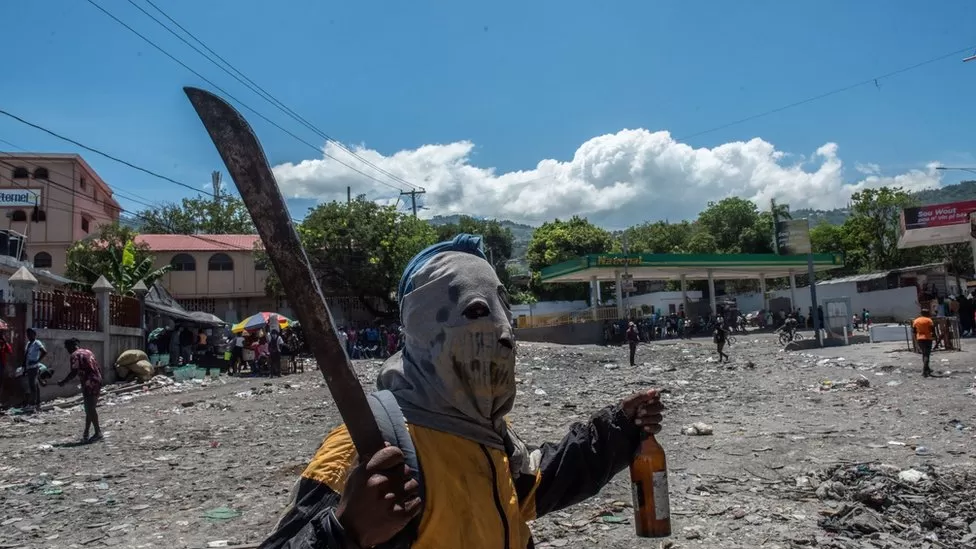
Haiti has asked for foreign military support to curb its gang violence crisis which has paralysed the country.
The Haitian government authorised Prime Minister Ariel Henry to request armed help due to “the risk of a major humanitarian crisis”.
The US meanwhile urged its citizens in Haiti to leave due to the insecurity.
A group of powerful gangs have blocked the country’s main fuel terminal since September, crippling its basic supplies like water and food.
It is not clear to whom the request for intervention has been sent to, and in what form the help would be given.
The UN said it had not received an official request from Haiti’s government.
“That being said, we remain extremely concerned about the security situation in Haiti, the impact its having on the Haitian people, on our ability to do our work, especially in the humanitarian sphere,” said UN spokesperson, Stephane Dujarric.
The US is also considering a request for a humanitarian corridor to restore fuel distribution within Haiti, according to state department spokesperson Vedant Patel.
Mr Patel did not say where the troops to support this would come from.
Varreux fuel terminal has been controlled and blockaded by a coalition of powerful gangs since last month, which has ground the whole country to a halt. Some hospitals have shut, while businesses and transport services stopped working in protest of destitution.
Civil unrest escalated since Mr Henry announced an end to government fuel subsidies on 11 September, which sent petrol and diesel prices skyrocketing.
Since then, protests and looting have intensified, with the capital, Port-au-Prince, at the heart of it. Food aid warehouses have been targeted, with an estimated $5m (£4.6m) worth of food aid lost in repeated attacks, according to Haiti’s UN envoy.
It is unclear whether the Haitian government request for foreign military intervention would mean the return of UN peacekeeping troops, after leaving five years ago.
The UN’s presence has left a mixed legacy in Haiti: its peacekeepers accepted partial responsibility for sparking a cholera epidemic more than a decade ago which killed about 10,000 people.
Haiti’s government said eight people had died on Sunday from cholera, for the first time in three years – raising concerns over the potential for a health crisis too.
Of the many supplies that have been blocked by the country’s gangs, clean water is a vital one – especially as cholera is spread via contaminated water.
Haiti is one of the poorest countries in the world and has suffered a number of recent crises, most notably the assassination of its president, Jovenel Moïse, in July 2021 and a massive earthquake that left more than 2,200 people dead just a month later.
Deaths are frequent, with more than 200 people killed in gang violence in Port-au-Prince in the space of just 10 days in July, according to figures from the UN.





















